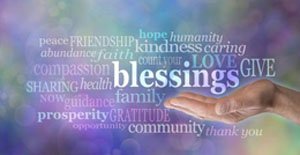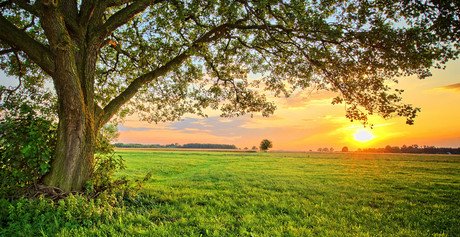Michael Teachings Community
by DAVID GREGGMeet and Interact with Michael Students
Michael Teachings

Welcome to the Michael Teachings Community!
In the links below you'll find some great ways to interact with the Michael teachings community. We have recently added a new forum where you can engage in conversations about the teachings and other areas of interest. In addition, it's highly recommended that you join our email discussion group so you can meet and connect with other Michael students.
 Michael Teachings Discussion list (a prime hangout for students)
Michael Teachings Discussion list (a prime hangout for students)
 Michael Teachings Facebook Page (LIKE us!)
Michael Teachings Facebook Page (LIKE us!)
 Michael Teachings Group (a lively Facebook discussion group)
Michael Teachings Group (a lively Facebook discussion group)
 Michael Teachings Twitter site
Michael Teachings Twitter site
 Michael Teachings YouTube Channel
Michael Teachings YouTube Channel
(Old) Spiritweb Michael Teachings List & MT Archives
-
Archives of Spiritweb Michael List
The Michael teachings discussion list was once based at the now defunct Spiritweb site. The list was active from 1997 to 2002, and the subscribers later migrated to the current list at YahooGroups. Thankfully, the archives were saved for posterity and they are now here for your perusal.
-
Michael Teachings Archives
The Michael teachings archives house selected topics once posted at the Michael teachings discussion groups. The information stored there represents over ten years of thoughtful scholarship and fruitful exchange.
A highly recommended destination for further study.
Channeling About the Michael Community

Please talk about your views regarding creating a Michael community.
MICHAEL: The teachings as a whole do not depend upon the formation of a community. We do try to reach those we have agreements with, however there is no timetable and no sense of urgency; we offer the teachings as a tool, not as a way of life. But people in a community certainly enrich the quality of your lives, and opportunities then abound to test the principles learned in the teachings.We sense the channel dislikes the cliques that often develop in communities, but we do not see the harm in any endeavor that fosters more personal growth and positive interaction. We will add, however, that cliques are often attempts to avoid growth and they largely arise when the differences of others are looked upon with fear. Rather than succumbing to this easy-way-out through avoidance, we encourage more of you to face those you have difficulties with (although we do not mean this in an adversarial sense). The lessons of the teachings are most effective when you learn the appropriate response to those that challenge you. If you find yourself in a constant state of flight from fragments who are not your vibrational match, you miss many useful o pportunities to apply the teachings.
In simpler terms, the teachings help you learn to connect with the unconnectable. When you can do that with both compassion and tolerance, you are truly doing good work.
Is there a community mission that makes one group more special than another?
MICHAEL: Since in the eyes of the Tao no individual or group is more worthy than another, the term "special" serves no useful purpose here other than to excite the chief features. Whether or not our students splinter into smaller groups or find a way to bridge the gap into a homogenous blend, is of little concern to us; the teachings are simply a tool to improve your understanding of yourself and others. If you feel that a sturdier toolbox will help protect you, then that is your personal choice. But it is a choice, not a necessity.
We do not hover over one particular group of fragments, nor do we currently support a specific community mission -- other than the guidance we provide to each of our students individually.
Do students need a community for the purposes of understanding the teachings?
MICHAEL: Community is, of course, a necessary and valuable part of your experience on the physical plane. Many practical reasons exist for living in a community -- too many to list here -- and the variety of relationships forged in these interactions are vital to your continued development. The formation of a Michael community, per se, is certainly not counter-productive to our intentions, and the mutual exchange of ideas and camaraderie that develops between students who share your interest can be quite meaningful. But as we have said before, the effectiveness of the teachings does not depend upon the formation of a student community. Greater learning experiences are actually achieved when you apply the teachings to fragments in your own local circle. Since you often share pre-incarnational agreements and karma with these fragments, they will likely challenge your grasp of the teachings in situations that test the limits of what you have learned.
With that said, we do not wish to discourage any students who actively nurture communities based on the teachings.
What is community as defined by Michael and Michael students?
MICHAEL: We define community as the cooperative coalescence between people of diverse persuasions who agree to co-exist in a mutually beneficial way.
Many types of communities exist -- more than can be named at this time -- but the real bonding agent that holds them together is the magnetic draw of tolerance and acceptance. Obviously there are practical factors in communities, such as the exchange of goods and services, religious worship, municipal governance, and so forth, but the lessons surrounding tolerance and acceptance provide the glue that creates a lasting bond. Now such lessons are often pursued unconsciously, but they are still an overriding influence in any community.
Too many variables exist to define a community by the individual desires of Michael students, but the nine needs: Security, Adventure, Freedom, Expansion, Power, Expression, Acceptance, Communion, and Exchange could certainly be used as a guideline in this endeavor.
If we were to draw up a blueprint of a future Michael community, we would make sure that the nine needs are properly emphasized.
Tell us more about how students can apply the teachings in the community.
MICHAEL: As we mentioned earlier, students will find the teachings more instrumental if they can learn to conquer avoidance. More specifically, the fearful avoidance of others, self, and life in all of its complexities. When you avoid anything out of fear or judgement, you actually create a void in yourself that lessens your opportunities for growth. Applying the teachings here will not only help you see the rest of humanity without a jaundiced eye, but a world once devoid of color will suddenly shimmer with a radiance never seen before -- there is nothing more striking than the truth.
It is by no accident, by the way, that personalities have clashed in the Michael community, as there is no better way to learn about the teachings than to experience them firsthand. This doesn't mean you must be around other students in order to learn: your friends, family, and coworkers are your greatest teachers in this sense.
We are amused by students who passionately wish to understand the teachings yet seem so passionately unwilling to apply them to each other. Many of the conflicts we've sensed could easily be remedied if these difficulties were examined through the lens the teachings provides. Greater levels of compassion and tolerance are, of course, within the grasp of all of you, and when you learn to apply the teachings to those you perceive as difficult, the answers will be available.
It might surprise you to know that fragments who upset you are often reflecting an image of yourself that has yet to heal. This does not mean you should condone behavior that forcefully affects the choices of others, such as violence, but armed with your knowledge of the teachings, you have the key to unlocking the mysteries of the human psyche in profound and life changing ways. When you avoid or exclude others, however, either out of fear or judgement, you exclude a part of yourself. For this reason we encourage our students to open more doors than they close.
 David Gregg
David Gregg
About David Gregg
David is the webmaster of MichaelTeachings.com and also moderates the Michael teachings discussion list at Yahoogroups. He has been a Michael student since 1996 and began channeling as a tool for spiritual enrichment. He is also a professional musician and plays the saxophone, clarinet, and flute, with a lifetime love for jazz and classical music. He enjoys literature and book collecting, and writes short stories in his spare time.
He occasionally writes reviews and profiles of jazz musicians at his jazz blog, Jazz Reader.
Did You Enjoy This Article? Share It With Your Friends

Shop at the
New Age Store
Comments
RELATED ARTICLES


The Old Soul
By PHIL WITTMEYERLearn about the Overleaves, personality traits that shape our individual experience during each lifetime.
READ MORE